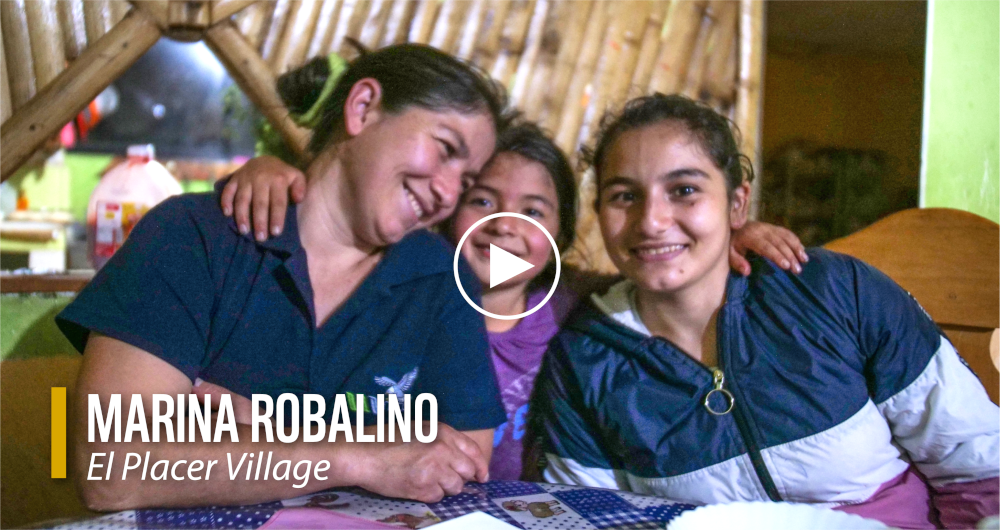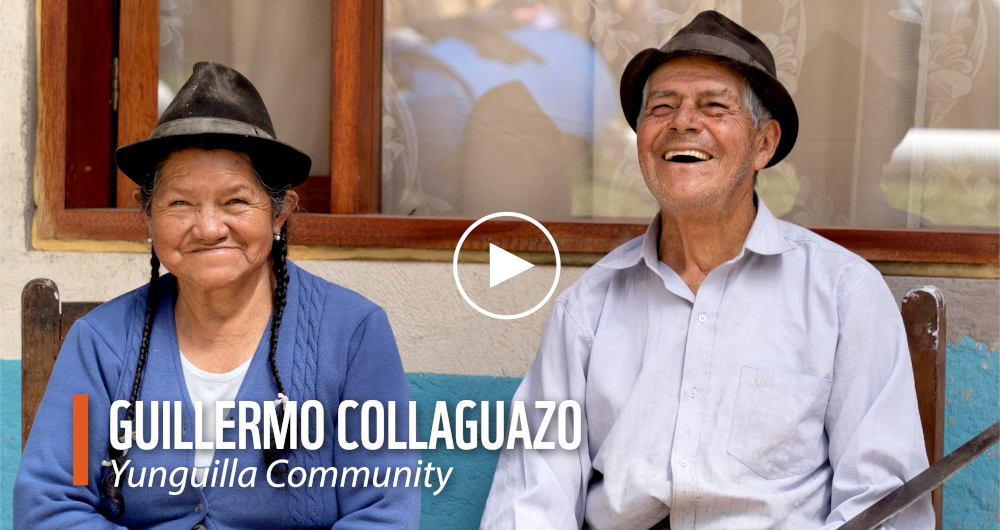The WWF is run at a local level by the following offices...
- WWF Global
- Adria
- Argentina
- Armenia
- AsiaPacific
- Australia
- Austria
- Azerbaijan
- Belgium
- Bhutan
- Bolivia
- Borneo
- Brazil
- Bulgaria
- Cambodia
- Cameroon
- Canada
- Caucasus
- Central African Republic
- Central America
- Chile
- China
- Colombia
- Croatia
- Democratic Republic of the Congo
- Denmark
- Ecuador
- European Policy Office
- Finland

Dawn breaks in the Andes Mountains. Coming from below, from the jungle, clouds rise and collide with the cloud forest and the paramo of the highlands. This daily dance among jungle, clouds, wind, and mountains guarantees water. With water comes irrigation, food, and commerce;
with water comes life.
In Ecuador, the biodiversity born from this cycle is vast and immeasurable. Large tapirs, tiny frogs, towering cedars, and microscopic orchids populate this land.
Crucial members of these ecosystems are Andean bears or spectacled bears, the second largest mammals in the region and a species at the top of the food chain.
Their presence guarantees the protection of a wide range of species, for their health reflects the health of their territory. Spectacled bears are the guardians of the inter-Andean forests.
THE ANDEAN BEAR FOOTPRINT
Andean bears must travel across large areas to survive. Each bear needs at least 30 km2 to survive. Their preferred food is fruits and the sweet and juicy centers of some bromeliads. Both characteristics make them vital conservation allies, as they regenerate the forests they pass through.

Marina Robalino, a resident of El Placer, has known since she was little that spectacled bears are not intruders in this territory. This has been the bears' home for hundreds of years. However, what was once forest, is now plantations and their food is scarce. Hungry, bears forage for food in the fields in the populated areas. While others want to hunt the bears, Marina has chosen to protect them by raising awareness in her community.
This is why, in 2018, Marina joined Rosa and nineteen other women and one man from her community to look for other sources of revenue that would allow them to have a higher income and, at the same time, that would help them protect the mountain, the forest and animals such as spectacled bears. And so, Quinde Warmi was born.


Rolando Collaguazo, a member of this community, emphasizes that during wildlife monitoring, which is conducted periodically in Yunguilla, about 50 spectacled bears have been identified in this area. It is estimated that there are approximately 120 Andean bears in the entire Metropolitan District of Quito.
Thanks to practices such as species monitoring, research, and their application in conservation projects, Yunguilla has become a benchmark for other communities. As a result, that dream that began with 18 families, such as that of Mr. Guillermo Collaguazo, is now a reality.


WORKING FOR TODAY AND FOR THE FUTURE
El Placer and Yunguilla are two communities several hundred kilometers apart. However, both territories are twinned due to the awareness raised by their people to seek new ways of living, by not only ceasing to exploit natural resources, but also promoting, through their practices, the restoration of these ecosystems. They know that this is the best legacy they can leave to future generations.

OUR MISSION: HEALTHY FORESTS, HEALTHY BEARS, HEALTHY PEOPLE
With the aim of consolidating conservation areas in territories and ecosystems inhabited by Andean bears, WWF Ecuador supports the Spectacled Bear Conservation Project within the Llanganates-Sangay Ecological Corridor, through actions such as monitoring wildlife with camera traps and strengthening sustainable development alternatives for local communities living in this corridor.
Ecominga Foundation has been an important partner in this process, working with the communities in this territory for more than 15 years.
The Yunguilla community is also collaborating with this initiative by sharing its knowledge and lessons learned regarding organizational issues and the development of sustainable livelihoods. WWF Ecuador wants to make Yunguilla´s work visible so that other organizations may support them.
Understanding and internalizing the stories of El Placer and Yunguilla will allow us to revalue these ecologically valuable territories within our country and to recognize the efforts of those who work each day for their conservation. If we do not learn to respect these fragile ecosystems, not only will majestic and millenary species such as the Andean bear be at risk, but also the human communities that live there will be threatened. Their well-being is connected to the health of the ecosystem, which provides them with water, food, and livelihoods.









